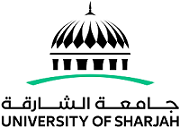The role of metabolic reprogramming in the sensitivity of breast cancer to chemotherapy and immunotherapy
Linked Agent
Al-Tal, Taleb H, Thesis advisor
Ibrahim, Saleh, degree co-., Thesis advisor
ِِِِOmar, Hany A.,, Thesis advisor
Date Issued
2021
Language
English
Keyword
Thesis Type
Thesis
Abstract
Background: Breast cancer cells hijack lactic acid fermentation, even in the presence of oxygen, which is different from the metabolism in normal cells. This phenomenon is called aerobic glycolysis and it is associated with resistance to chemotherapy and immunotherapy. In addition, breast cancer cells acquire metabolic flexibility, by which different breast cancer subtypes exhibit distinct metabolic profiles. Based on these findings, we hypothesized that tackling breast cancer through targeting metabolic reprogramming would improve the response to chemotherapy and immunotherapy. Methods: The potential synergy between doxorubicin and the glycolysis inhibitor (OSU-CG5)/ pyruvate dehydrogenase E1α inhibitor (CPI613) was investigated via several molecular techniques as MTT cell viability assay, Annexin V/PI staining, Western Blot, PCR, followed by the assessment of the mitochondrial characteristics using different assays. The correlation between pyruvate dehydrogenase E1α and its inactive form (P-PDH-E1α), with the molecular subtypes of breast cancers was investigated on the mRNA level in transcriptomics data of breast cancer patients retrieved from the cancer genome atlas, and on the protein level in breast cancer cell lines and breast cancer patients' tissues via Western blot and immunohistochemistry, respectively. The combination of PDH-E1α inhibitor and the immune checkpoint inhibitor (anti-PDL1) was assessed in Balb/c mice inoculated with luciferase 4T1 transfected cells. Finally, a novel anti-cancer agent with metabolic regulatory effect was developed and its activity and safety was assessed in vitro by Western blot, drug affinity response target stability assay and in vivo in SJL mice and xenograft nude mice tumor model. Results: The resistance characteristics of the developed resistant MCF7 and MDA-MB231 cells were verified by the increased expression of ABC transporters and enrichment of cancer stem cells. Doxorubicin and OSU-CG5/CPI-613 combination treatments showed a synergis
Note
A thesis submitted in partial fulfillment of the requirements for the Ph.D. in Molecular Medicine and Translational Research, College of Medicine, University of Sharjah, Sharjah, United Arab Emirates
Category
Theses
Library of Congress Classification
WP870 Z19r 2021
Local Identifier
b1398603x







